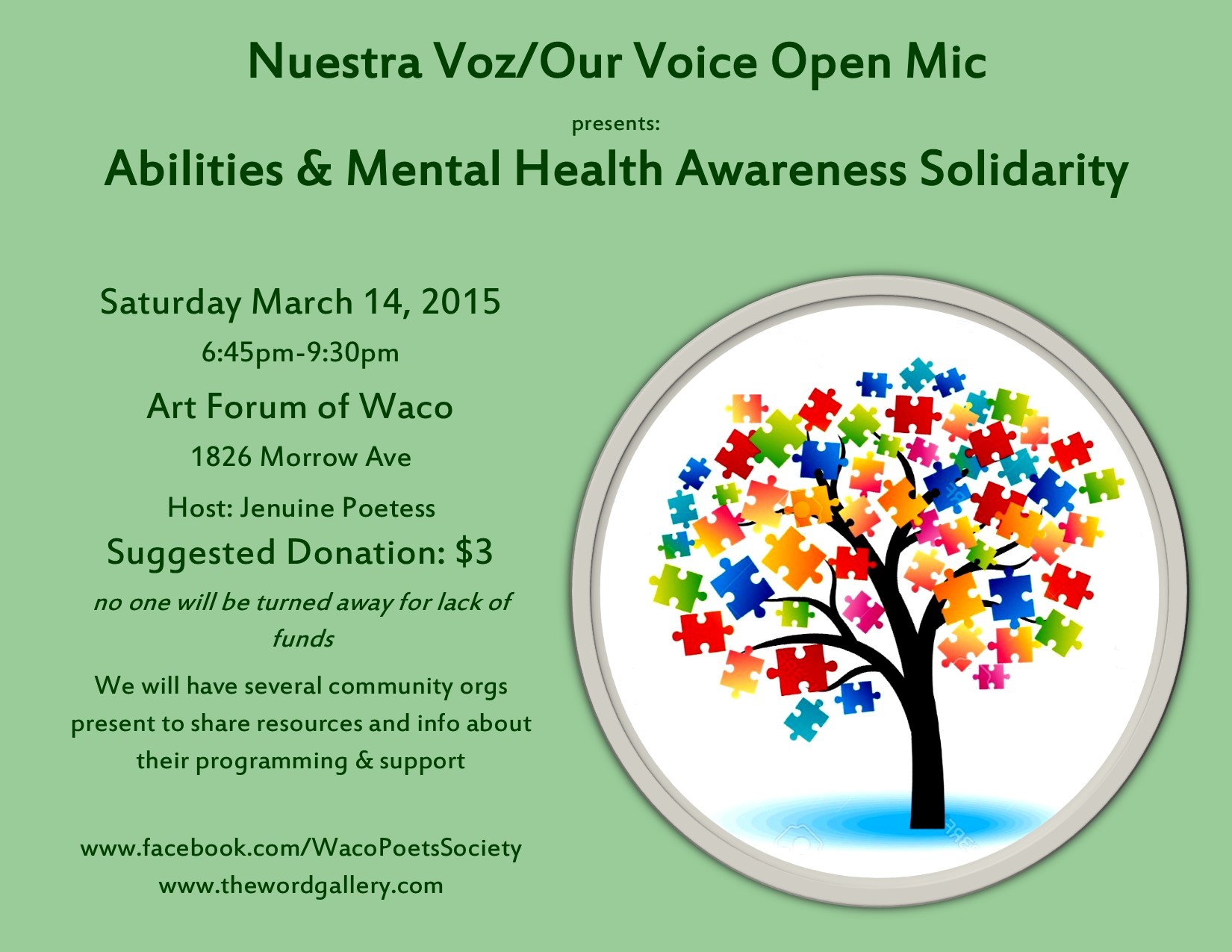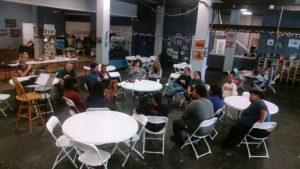By Matthew Polk
On February 18, Prosper Waco held its Inaugural Event at the Waco Convention Center. The event was free and open to the public. About 450 community members attended. Troy Bush, one of our partners at Episcopal Health Foundation (EHF) in Houston, commented earlier this week on how impressive it was to see so many people in one place to dialogue about community issues. Even in Houston, he said, it would be difficult to bring together 450 people for a community conversation.
But is 450 enough? How many people does it take to truly represent a community as diverse as Waco?
Some who attended the Inaugural Event wondered if a person living in poverty would have felt welcome at the very event that was supposed to be about reducing poverty. That is a troubling question. If we want to improve the overall prosperity of our community, we are going to have to work together to overcome some serious challenges associated with Education, Health and Financial Security. To do this effectively, all of us must be a part of the conversation. We need every perspective. We need the perspective of those of us who wrestle every day with the realities and practicalities of life WITHOUT solid education, sound health and secure finances.
The promise of Prosper Waco is in the bridges that we can build between big-picture strategies for community improvement and the needs of people in neighborhoods throughout the city. We have a long history of productive big-picture thinking by our public officials and by people who have had the financial resources to make big investments. Our system of Family Health Centers, our abundant water supply and the attractiveness of community jewels such as Cameron Park, the Zoo, and the Convention Center are evidence of wise, strategic, big-picture thinking that has paid off.
We also have a long history of neighborhood development. We have experienced the benefit of doing the patient work of building relationships, one neighbor at a time, even when lack of resources makes those relationships both more crucial and more difficult to maintain. The success of the 15th Street “Street of Dreams” initiative is a great example of this kind of neighborhood-level revitalization work.
Often, however, it has been difficult to find effective ways to connect visionary plans and grassroots work. Certainly there are examples of where it has happened—for example, the City of Waco housing department worked effectively with local non-profits to better serve Waco’s homeless population and dramatically decrease the number of people in Waco who suffer chronic homelessness. But it remains a challenge to build bridges between a community’s resources and the people who need to benefit from them.
The momentum behind the Prosper Waco initiative and the generous engagement of a wide range of community partners makes this the right time to successfully build those bridges, to engage the whole community, to work together.
That’s why our partnership with Troy and EHF is important. EHF has a track record of engaging communities to identify local health challenges and to develop strategies to overcome those challenges. They are experts in making sure people from all parts of a community are involved in developing the solutions that will make their community stronger. One of the techniques they have used successfully to get this kind of community involvement is to establish a Community Engagement Council. Prosper Waco has partnered with EHF and Alexis Christensen, a local community organizer, to develop a Community Engagement Council for Waco to help ensure that people throughout Waco participate in the Prosper Waco initiative.
The Prosper Waco Community Engagement Council is a group of individuals who live in some of the neighborhoods in East, North and South Waco where the challenges of education, health and financial security are felt most acutely. These are individuals who are active in the community and willing to take the time to dialogue together to think about the best ways to take the Prosper Waco initiative to people in all parts of the city.
The council members will be actively spreading the news about Prosper Waco in their neighborhoods. They will be inviting friends and neighbors to events to learn more about Prosper Waco activities and to have conversations about what Prosper Waco can mean for them. They may be reaching out to you or people you know with an invitation to have dinner and dialogue about Prosper Waco. Be on the lookout for signs of Prosper Waco in your neighborhood.
Does this type of community conversation interest you? A steering committee discussion of community data may not be your cup of tea, but a conversation over dinner with friends and neighbors may be a way that you can help build this community initiative. If you are interested in building community engagement as part of the Prosper Waco initiative—especially if you live in one of the areas of the city mentioned above—give us a call at 741-0081, or email me at [email protected] and let me know that you’re interested in being part of the work of Prosper Waco.
Editor’s note: FYI, Prosper Waco has a show on the Waco City Cable Channel. Click here to see Matthew’s interview with Pastor C.J. Oliver, a member of the Community Engagement Council. It is in the second half of the show after the interview with Dr. Jim Morrison.
 Matthew Polk is Executive Director of Prosper Waco. Prior to that, he served as Superintendent of Rapoport Academy Public School. He and his wife attended Baylor, and after spending a few years in the northeast, they returned to Waco to raise their family. They have four children, ages 8 to 3 months. You can contact him at [email protected].
Matthew Polk is Executive Director of Prosper Waco. Prior to that, he served as Superintendent of Rapoport Academy Public School. He and his wife attended Baylor, and after spending a few years in the northeast, they returned to Waco to raise their family. They have four children, ages 8 to 3 months. You can contact him at [email protected].
The Act Locally Waco blog publishes posts with a connection to these aspirations for Waco. If you are interested in writing for the Act Locally Waco Blog, please email [email protected] for more information.
By Katherine Landgrave
What is preconception health? A couple of years ago, if I had looked at this word I would have probably focused on the conception part and would have been terrified at the word. As a 22 year old in graduate school, the idea of having a child is the furthest thing from my mind. I am a huge planner and have my next five years all mapped out. However, if there is anything I’ve learned from life, it’s that life tends to throw curve balls at you and things don’t always go according to plan. For instance, did you know that over half of pregnancies in the US are not planned? Of course no expects to have an “unplanned” pregnancy, but obviously it happens quite frequently. While having children is not a part of my five year plan, I need to remember that my plan isn’t always what will really happen.
So again, what exactly is preconception health? Preconception health refers to the health of women and men during their reproductive years, when they can have a child. So it’s a broad area of health that covers any woman or man during childbearing age. I think one of the things that surprised me most about this definition is that preconception health isn’t just about women, but about men too. Preconception health is about making sure women and men are becoming healthier for their future and for the future of their children.
For women, preconception health isn’t just about a woman’s pregnancy or planning for one. It means choosing healthy habits today, so that you will have a healthier life. It means planning for your future and taking steps to make that future a reality.
Preconception health for men is about staying healthy too. That may mean being active so you can be there for your children one day and protect them, or it may mean encouraging and supporting the health of your partner. It means being able to be healthy enough to provide for yourself and your family one day.
Preconception health is also about the health of our babies. The United States has some of the worst birth outcomes among developed countries. I know that I don’t want my future children to be born premature or to have any complications, so I want to do everything I can do today to protect the future of my children someday down the line.
So what can we do to focus on preconception health? Texas has started a campaign called “Someday Starts Now” that focuses on this exact topic. On their website www.somedaystartsnow.com they provide information for men and women in every life phase. They have different categories like “I don’t want or can’t have children”, “I’m not sure if I want children”, “I want to have a baby someday”, “I’m expecting a baby now”, “I’m already a mother”, “I’m finished having babies”, and even “My partner and I have lost a pregnancy or baby.” These seven categories cover a wide variety of life’s situations and provide tips on how to have a healthy body, healthy environment, and healthy mind. This campaign does a great job of getting women and men to start thinking about their future and making life plans for themselves.
One of my favorite parts of the campaign is the “life planning tool”.
In it you identify your goals for the future and write out how you are going to achieve those goals. This is something every woman should fill out today. As I mentioned before, I like outlining my plans. This tool helps me align my five year plan with my health goals and family plan. It starts me on the path to make sure the future is bright for the family I plan to have.
I’ve been working with the Healthy Babies Coalition and preconception health for four months now and I’ve come to realize how important it is for women and men everywhere. I don’t want to have a child right now, but I do want to have healthy children someday. Now I realize that I need to start taking care of myself today so I can bring a perfect little being into a healthy world someday in the future.
 Katherine Landgrave is a graduate assistant for the McLennan County Public Health Department working with the Healthy Baby Coalition. She is also a graduate student at Baylor University working on her master of in public health. Katherine has a passion for working in the community and through this position has found an interest for working with maternal and child health. She hopes to one day go to medical school and continue helping improve birth outcomes and the overall health of all women.
Katherine Landgrave is a graduate assistant for the McLennan County Public Health Department working with the Healthy Baby Coalition. She is also a graduate student at Baylor University working on her master of in public health. Katherine has a passion for working in the community and through this position has found an interest for working with maternal and child health. She hopes to one day go to medical school and continue helping improve birth outcomes and the overall health of all women.
The Act Locally Waco blog publishes posts with a connection to these aspirations for Waco. If you are interested in writing for the Act Locally Waco Blog, please email [email protected] for more information.
By Kenneth Moerbe
“I have a ‘business card’ that has the usual info, my name, contact information, etc., while in the place where most folks indicate their business, vocation, etc., I simply have the word “Volunteer”. I’ve been blessed to be able to volunteer in our community throughout my almost two decades of being a Waco resident, especially since I retired from my last job at Caritas of Waco. Last week (5/19-5/22) was one of the most fabulous weeks of my volunteering experience, and not at all because of any time, energy, and gifts that I, as a volunteer, was able to give to our community, but because of the encouragement, delight and just plain human joy that I was able to derive from being with just a few of the remarkable children and youth living in our community!
This rewarding week began with a brief conversation with a fellow member of the Waco Kiwanis Club, who is the chairperson of the our club’s Kiwanis Foundation’s Board, which annually provides college scholarships to students in local high schools. In that conversation I learned that one of the recipients of our scholarships was the President of the Kiwanis Key Club at A.J. Moore/University High, whom I had met last fall while attending a meeting of this very active Key Club. We establish Key Clubs in high schools to encourage students to give their volunteer time and gifts to community efforts to improve the lives of children and youth. In a recent conversation with this student leader, I learned some of the specifics of the community service of this group, probably also the most active community service organizations at University High in terms of hours volunteered in community service. Examples of volunteer service this past school year included: collaborating with Communities in Schools to mentor and tutor students at South Waco Elementary and West Elementary schools, volunteering to help serve and clean up at the Salvation Army’s Thanksgiving and Christmas meals, park and recreational area clean-ups, participating in the Race for the Cure, etc., etc., etc.!
On Tuesday, as a member of the Mission Waco/Mission World Board, I spent some very enjoyable moments with some of our African American youth who were involved in Mission Waco Youth’s Wellspring Awards Banquet. This annual event usually involves some high school graduating seniors receiving scholarships. This program began some years ago when an anonymous couple, who believed in Mission Waco’s ministry among youth living in poverty and in the potential for urban youth to overcome the scourge of poverty in their lives through education. This couple made a significant donation to Mission Waco to establish this Wellspring Scholarship Program. However, this year there being no graduating high school seniors in this youth ministry, a group of youth from the 3rd grade through the 8th grade, were brought together and affirmed for their achievements that included spiritual growth, as well as growth in other qualities while taking part in this youth ministry. As Jimmy Dorrell talked briefly with them about the theme of this ministry expressed in the words, “You are Capable”, and they introduced themselves and shared their hopes and dreams, it was very apparent that they were not only high achievers in the Mission Waco program, but in their families, neighborhoods, schools and probably congregations. I left the experience incredibly thankful that I had been invited to experience and interact with these fantastic kids!
The next day I attended the Permanent Housing Task Force, a small and energetic group of professionals in several local agencies involved in trying to end chronic homelessness, increasing housing stability among our residents, and implementing the Almost Home Waco Campaign. One of the reports related to these efforts was specifically about the hundreds of youth in Waco ISD who ‘lack a fixed, regular, and adequate nighttime residence.” This is the language of the McKinney-Vento Act which tries to insure that children and youth have some educational stability as they experience a form of homelessness. In recent years as many as 10% (1500 students) of Waco ISD students are classified as ‘unaccompanied youth’ as they live in motels, hotels, campgrounds, wherever they can find temporary housing, or children where primary nighttime residence is not used as a regular sleeping accommodation. As we approach a time of graduation from high school in our community, Cheryl Pooler, our homeless liaison staff person, reported that 40+ of these youth were graduating from high school this year, and that both Waco High and University High had at least one of these graduates in the top ten members of the senior class. In the last few years I’ve heard wonderful stories of these ‘unaccompanied youth’ completing graduation requirements while living in very unstable and constantly changing circumstances. I remain more than impressed with the resiliency, character and determination of these youth!
Finally, I have, for a number of years, served on the A.J. Moore Academy/University High Business Advisory Board. My specific responsibility in recent times has involved serving in leadership of the Fundraising-Scholarship Committee. As we approach the time of awarding these scholarships to seniors I’m involved, along with others on the Advisory Board, in the evaluation of these written applications. Also, last Friday, as part of this process we interviewed the top fifteen of these applicants. Again, it was the most amazing experience to listen as these brilliant, talented, creative, hardworking and articulate scholars talk about their lives and their hopes and plans for continuing their educations in a college or technical school, leading to a variety of careers. Most of these students had at least one part-time job, not only to hopefully be able to save money for their future education, but several of them held these jobs to assist and support their families to put food on the table and a roof over their heads.
One of these students, who was ranked near the top of the fifteen finalists, particularly captured my attention as the student shared that they worked at three part-time jobs, and also provides for much of the ‘parental care’ of the student’s two younger sisters. This student was brought by her parents to Texas when she was six years of age, and on several occasions during the interview when programs which might assist this student were referred to, the student simply said that they could take advantage of this program “because I am not a citizen of this county.” All that I could think of to say to this student as they left the interview was “I’m so glad you are here in this country”. I’m proud to live in this community with these remarkable kids. We are truly blessed!
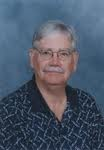 This post was written by Kenneth Moerbe. Kenneth is a Lutheran minister and the former executive director of Caritas. He has participated on just about every committee and task force in town that has anything at all to do with increasing food security or reducing poverty. When he and his wife, Paula, are not gallivanting all over the world on one of their many travels, they are busy serving on various boards, delivering Meals on Wheels and generally being two of the finest and most fun folks in Waco.
This post was written by Kenneth Moerbe. Kenneth is a Lutheran minister and the former executive director of Caritas. He has participated on just about every committee and task force in town that has anything at all to do with increasing food security or reducing poverty. When he and his wife, Paula, are not gallivanting all over the world on one of their many travels, they are busy serving on various boards, delivering Meals on Wheels and generally being two of the finest and most fun folks in Waco.
The Act Locally Waco blog publishes posts with a connection to these aspirations for Waco. If you are interested in writing for the Act Locally Waco Blog, please email [email protected] for more information.
By Liz Ligawa
Her name was Lulu. She was from Vietnam, and seemed to be around 70 years old. I gently handed Lulu a flyer we were sharing with those experiencing housing insecurity. It was about the worship service which would be held in the park on Tuesday, and the Sunday service which would be held at the church followed by a meal. Lulu looked up at me quizzically and replied, “We have no food. Nobody come today. We are hungry.” The day was Saturday.
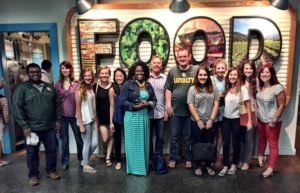 I had been looking forward to this D.C. Hunger in America trip for the past few months. My natural inclination towards advocacy seemed to fit well with what Baylor Missions and the Texas Hunger Initiative were working on in D.C. with regard to addressing the need of food security. I was ready. Who would not want to help with this issue?
I had been looking forward to this D.C. Hunger in America trip for the past few months. My natural inclination towards advocacy seemed to fit well with what Baylor Missions and the Texas Hunger Initiative were working on in D.C. with regard to addressing the need of food security. I was ready. Who would not want to help with this issue?
Not many people know this, but the way Ashley Thornton, the Director of Act Locally Waco, and I became acquainted was through this Act Locally Waco blog. I had a dissenting opinion on an article that was posted, and she in turn asked if I would consider contributing to the blog. She wanted to get together to chat. I was stunned (and a little bit scared). Who responds to dissent in this way? Ashley does. But she does not respond in this way to dissuade you from your position; she honors dissent on the search to find ways to include more voices in the conversation. On this trip, I would realize that I would have to also find ways to include others in this dialogue-especially when talking about the economically poor.
“1 out of 7 senior adults are food insecure.” –National Council on Aging
I looked around to see if there was anyone with Lulu. She did not have a home, but surely she was not out here by herself, right? I wanted to know, but Lulu mainly spoke Vietnamese. One of the fellow students on the trip was also Vietnamese…and Lulu was able to share her story. Lulu was alone. Her son had left her.
During the week in D.C., we had several opportunities to use our voices to influence political will. We participated in advocacy meetings on the capitol with representatives. We met with heads at USDA, and discussed policy implications with direct reports to President Obama. We visited several agencies committed to addressing food insecurity, and even attended a Sub-Committee hearing on food benefit programs. There was a lot of talking (and walking). But there, in front of Lulu, I was faced with my own limitations. I had been talking about the need for food security all week, but I did not even have a granola bar in my pocket to offer Lulu. I felt like I failed her.
That is when something amazing happened. A small group of hipster guys (dissenters in their own right) started setting up a table at the far end of the park. I was curious as to what they were doing, but I wanted to complete the assignment that brought us to the park, and share with others the opportunities available through the church that sponsored us. After a few moments, my curiosity won out, and I decided to check them out.
The first thing I noticed was a banner, “Food Not Bombs”, hanging over the front of the table. Dissent. At first I didn’t notice any food with them, and I thought it was in poor taste to protest against funds for weaponry among those who need food. I was not against their dissension, I just did not understand its place. But then I started a conversation, and realized not only did they have food, but they had fresh fruit, salad, and soup was on the way. They were there to serve those who were hungry. I could think of nothing more honoring to do than join them.
What happened in the park that day reminds me of the model that the Texas Hunger Initiative uses to serve well while reducing hunger: Public, Private Partnerships. Don’t let the term frighten you if you are not familiar with it. It just boils down to: “Many hands make lighter the load”.
 THI is doing some great work with this model, and they are helping people like us, and organizations we are a part of, figure out even greater ways to serve. I had to look further than what I thought the hipsters were doing to see that we shared in significant and important work together. So, if this is your thing, you should check THI out: www.baylor.edu/texashunger. Tell Doug that Liz sent you.
THI is doing some great work with this model, and they are helping people like us, and organizations we are a part of, figure out even greater ways to serve. I had to look further than what I thought the hipsters were doing to see that we shared in significant and important work together. So, if this is your thing, you should check THI out: www.baylor.edu/texashunger. Tell Doug that Liz sent you.
“It’s my pleasure to serve you,” I would repeat over, and over again as I placed a ladle-full of fruit in a cup for welcoming hands. “It’s my pleasure to serve you.” There were so many gathered. I was going as fast as I could, but still wanted to be gentle, and kind with every cup offered. All of a sudden, the group in front of me parts down the middle, and a tiny lady comes through offering up gloved hands, and soft eyes. My heart leaps, and I can barely get a whisper through my tears, “It’s my pleasure to serve you, Lulu…My pleasure to serve you.”
 This post was written by Liz Ligawa. Liz is a graduate student of Baylor University where she has found the perfect expression of her community-centered heart in the MDiv/MSW degree program. With a concentration on Community Practice, she is also the adoring mother of one son, Elijah, who prefers to be regarded in public as Spider-Man. She may be reached at [email protected].
This post was written by Liz Ligawa. Liz is a graduate student of Baylor University where she has found the perfect expression of her community-centered heart in the MDiv/MSW degree program. With a concentration on Community Practice, she is also the adoring mother of one son, Elijah, who prefers to be regarded in public as Spider-Man. She may be reached at [email protected].
The Act Locally Waco blog publishes posts with a connection to these aspirations for Waco. If you are interested in writing for the Act Locally Waco Blog, please email [email protected] for more information.
By Janet Phelps
A lack of knowledge and basic skills can have devastating effects on adults who want to go to college. Just ask Amber*, a 20-something student who came into my office at McLennan Community College last week and told me she wanted to go back to school.
Amber had recently lost her job at a fast-food restaurant and had been unable to find work since. In her two semesters at MCC before she dropped out, Amber had racked up $7,000 in student debt by accepting her entire financial aid package — subsidized and unsubsidized loans — and using the money for living expenses while enrolled in college.
How many credits had she earned? Not nearly enough. Amber still needs to complete her developmental education requirements – collegespeak for remedial classes that students who aren’t college material must take to catch up.
Facing repayment of her debts without a job or a college degree seems impossible to Amber, a first-generation college student who is financially independent and will be considered in default on her loans next month.
One possible way to help Amber and students like her is to help them get a stronger start into college by helping them perform better on the state college entrance test.
Around 60 percent of students entering MCC test into development education annually through the TSI, the state’s college entrance test. Those students must complete classes to improve skills they need for college-level courses before they can start taking courses that count toward a degree. For students like Amber, taking these classes burns through financial aid without improving earning potential or economic status.
A state-wide effort is being made to help students avoid developmental education classes. Local schools and colleges are also working to fill this gap.
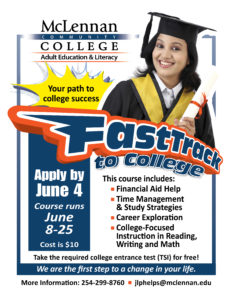 Adult Education and Literacy for the Heart of Texas is among the organizations tasked with helping these students. That’s why we’re creating classes meant to help transition adults from all walks of life to get into college and be successful.
Adult Education and Literacy for the Heart of Texas is among the organizations tasked with helping these students. That’s why we’re creating classes meant to help transition adults from all walks of life to get into college and be successful.
Because the MCC program is funded by the Texas Workforce Commission, we have the unique ability to offer these not-for-credit classes at a very low cost to students.
The first FastTrack to College class will equip students with the college knowledge they need for success including financial literacy and financial aid knowledge, career awareness, computer literacy, time management, and study skills. The class will also prepare students academically in reading, writing, and math to take the TSI, which is included in the $10 cost of the class. The class will be taught by MCC instructors and supported by officials from MCC and TSTC whose goal is for students to transition into college courses at those institutions in the fall.
This class is the first of what will become regular offerings of college-readiness classes through Adult Education to help students test out of developmental classes and build the confidence and skills they need to successfully complete their degrees.
So what can you do?
Refer people who want to go back to college and need extra support to this class. The process of signing up includes filling out an application, taking a placement test and completing a short goal-setting interview with a career navigator Adult Education.
For many Wacoans who are stuck in dead-end jobs, a technical certificate or associates degree from TSTC or MCC is the key to pulling an entire family into a stable financial position.
Our hope is that our efforts — along with those being made by other departments and organizations in this community — will boost the economic status of low-skilled adults and help students like Amber overcome knowledge gaps that threaten her success. Here are the details:
FastTrack to College class
Monday – Thursday
June 8 – 25, 2015
8:30 a.m. to 12:30 p.m.
McLennan Community College campus
To learn more about or to sign up for the FastTrack to College Class, contact Adult Education at 299-8053 or email Janet at [email protected]. Click here for a flyer to share with anyone you know who might be interested in this program.
*Amber is a pseudonym for a student who did not give permission for her name to be used on this blog.
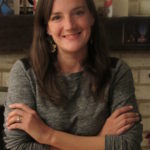 Janet Phelps is the Transition Specialist for Adult Education and Literacy for the Heart of Texas at McLennan Community College. She loves helping students, reading, and running at Cameron Park.
Janet Phelps is the Transition Specialist for Adult Education and Literacy for the Heart of Texas at McLennan Community College. She loves helping students, reading, and running at Cameron Park.
The Act Locally Waco blog publishes posts with a connection to these aspirations for Waco. If you are interested in writing for the Act Locally Waco Blog, please email [email protected] for more information.
By Georgie Price
Three years ago, I began my professional career after college working as a case manager for children and adolescents struggling with mental health or behavioral challenges. I had little idea of what mental health was or how it impacted anyone in the community. I was naïve to the prevalence of mental health issues among youth.
Since then, I have had many experiences open my eyes to the need for help right here in our Waco community. Children and adolescents face a variety of mental health challenges every day, which range from just not being able to get up and go to school, building positive social interactions, to learning how to live and understand mental health and behavioral challenges. Many times family members, teachers and other individuals who interact with this population do not recognize signs and symptoms of mental health concerns, just because they don’t know what to look for. In my experience, this leads to children and adolescents with mental health concerns being seen in a negative light and not receiving the help they need. When just looking at the surface level, we may miss the indicators of a much larger issue, the most prevalent of these issues being anxiety, behavior, mood, and substance use disorders.
The pervasiveness of mental illness in young people can be surprising. For instance, our youth suffer from many disorders including: anxiety disorders at a rate of 31.9%, behavior disorders 19.1%, mood disorders 14.3%, and substance use disorders at 11.4%. Young people that suffer from these disorders are at a higher risk for suicide which, sadly, is the third leading cause of death for young people in the United States. Coming into this profession, I had no idea of the impact mental health was having on our young people but I knew there had to be a way for me to help.
A little over a year ago, I was fortunate enough to be part of a training, to become an instructor for Youth Mental Health First Aid. This program is geared towards educating and certifying community members to provide Mental Health First Aid, empowering them to recognize signs and symptoms of metal health within this population. In my agency, we are able to train a number of people including parents, youth leaders, and any group interested; however, we have geared our efforts towards training those most in contact with youth, which are our educators.
With all of the adversities youth and adolescents face today, it is imperative we differentiate normal teenage behaviors from a mental health concern or crisis. The training is intended for those without background or experience in mental health, and it is very easy to understand. My hope is that the more people within the community are trained, the more successful we all will be at helping our youth and families, as it takes a team to help youth and families achieve the life they desire.
Let me share a story with you: Approximately a year ago, I met a youth and his parent. This youth had a history of assaulting family members and obtaining lethal weapons. CPS was involved and the youth was then on juvenile probation for theft. As we sat down at their kitchen table, the youth would not look or acknowledge me and the parent was suspicious and resistant towards any help I could offer them. I was definitely discouraged, but chose not to give up. I knew I needed a team to help me connect with this family and provide them with as much support as possible. I reached out to the community and gained the alliance of the principal, probation officer, Boy Scout leader, counselor, psychiatrist, and a family partner.
After a couple of months of persistent efforts, all of us showing up at their home, the youth’s school, probation report-ins, wraparound meetings, and connecting them to resources, they began to trust and open up to me. After six months, we are sitting at the same table, and both the youth and parent are engaged and ready for the next task to help them reach the vision they have for the life they want. Anytime there was a setback, it motivated us as a team even more, because this family was not just a family we were helping, they became our family. After a yearlong process of all of us working together, the youth was no longer on probation, making straight A’s in school, no CPS involvement, and home life had improved drastically.
All of these things could not have happened without the help of individuals from the community. No matter what role you play – parent, teacher, pastor, counselor, coach, mentor, and neighbor- you will make an impact on that young person’s life. I encourage everyone to become educated on child and adolescent mental health, whether it is through a program like Youth Mental Health First Aid, or just checking out a book from the library that will better prepare you for interactions with this population. Thankfully, there are many organizations in the Waco community that you can reach out to, but one of the best ways to help our young people is to be become educated on mental health yourself. Your involvement and support in their lives is an invaluable resource we cannot replace.
 This Act Locally Waco blog post was written by Georgie Price. Georgie is a supervisor for a local non-profit that provides mental health services to children and adolescents. She attended Baylor University and earned a B.A. in Psychology in 2011. Originally from Marlin, Texas she began attending Baylor University in the fall of 2009 and moved to Waco in the fall of 2010 where she has lived since that time. Outside of work she enjoys spending time with her family and finding ways to positively impact children within our community. If you would like to contact Georgie further concerning Youth Mental Health First Aid training or additional resources please contact her at 254-297-7268.
This Act Locally Waco blog post was written by Georgie Price. Georgie is a supervisor for a local non-profit that provides mental health services to children and adolescents. She attended Baylor University and earned a B.A. in Psychology in 2011. Originally from Marlin, Texas she began attending Baylor University in the fall of 2009 and moved to Waco in the fall of 2010 where she has lived since that time. Outside of work she enjoys spending time with her family and finding ways to positively impact children within our community. If you would like to contact Georgie further concerning Youth Mental Health First Aid training or additional resources please contact her at 254-297-7268.
The Act Locally Waco blog publishes posts with a connection to these aspirations for Waco. If you are interested in writing for the Act Locally Waco Blog, please email [email protected] for more information.
By Ashley Bean Thornton
So, I ran for city council and I lost.
It’s been two weeks. I spent the first week taking naps, binge-watching “House of Cards” and eating ice cream and chips for dinner every night. (Really Blue Bell? You had to pick this year to have your big melt down?) Now, with two weeks of perspective under my belt, my mood has improved considerably. I’m not quite skipping yet, but there’s definitely a new spring in my step.
I know it sounds like sour grapes to bring it up at this point, but the truth is I wasn’t just chili red hot to run for city council in the first place.
When Toni Herbert, our retiring city council person, suggested I should run, I resisted strongly. My initial response was, “Not one single cell of my heart leaps up with joy at the thought of doing that.”
So why did I agree to do it? Well, I love Waco of course. And, I have been working really hard for several years on various committees and projects and pieces and parts that seem to finally be coming to fruition under the umbrella of the Prosper Waco initiative. I thought being on City Council would put me in a good position to keep nudging that along. I didn’t know anyone else who was thinking of running, so it just started to feel like the responsible thing to do. On top of that, I’m more susceptible to flattery than you might think, and it’s awfully flattering to have your city council person ask you to run to take her place.
So why did I resist? I’m 53 years old. I probably don’t know as much about myself as I should at this point, but I do know a few things. I know that I am more of an “acquired taste” than a “first impression.” I know that my most basic approach to life is, “Here I am. Take it or leave it.” I know that I am a friendly introvert — I like people, but people wear me out. None of this self-knowledge made me think, “Hey! You know what would be fun? Running for City Council!”
Also, I knew that I was already way, way too busy and I didn’t want to be any busier. I knew that I would HATE asking people to vote for me. I know this sounds peevish, but I knew that I would HATE having my picture taken. I knew that running for office was going to make me feel over-exposed. I knew that, win or lose, the whole process would be embarrassing and that the MOST embarrassing thing would be to lose.
There I said it. I know it’s a little bit immature, but one of the main reasons I didn’t want to run is because I know that when you run there’s a chance you will lose, and I thought to run and lose would be really embarrassing. And it is a little bit embarrassing. But…as it turns out…being embarrassed doesn’t actually kill you.
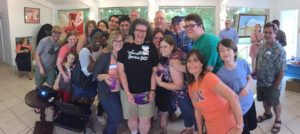 In fact, I liked it better than I thought I would. I was absolutely overwhelmed by all the kind, encouraging, enthusiastic support I received throughout the campaign. Some of this came from good friends, but even more came from people I hardly knew, some from people I didn’t know at all and would never have known if I hadn’t stepped out and run. I did a lot of door knocking, which was terrifying at first, but I learned that most people are pretty nice and some people genuinely appreciate you stopping by. (I also learned that there are a WHOLE lot of Chihuahuas in District 4. They are not always as nice as the people!) My campaign team was a true joy. What a wonderful, talented, fun, funny, creative group of folks! I couldn’t have asked for better people to help me, and I cannot imagine how I would have ever gotten to know them as well as I have if we hadn’t taken on this project together. That alone was worth the price of admission.
In fact, I liked it better than I thought I would. I was absolutely overwhelmed by all the kind, encouraging, enthusiastic support I received throughout the campaign. Some of this came from good friends, but even more came from people I hardly knew, some from people I didn’t know at all and would never have known if I hadn’t stepped out and run. I did a lot of door knocking, which was terrifying at first, but I learned that most people are pretty nice and some people genuinely appreciate you stopping by. (I also learned that there are a WHOLE lot of Chihuahuas in District 4. They are not always as nice as the people!) My campaign team was a true joy. What a wonderful, talented, fun, funny, creative group of folks! I couldn’t have asked for better people to help me, and I cannot imagine how I would have ever gotten to know them as well as I have if we hadn’t taken on this project together. That alone was worth the price of admission.
I did hate asking people to vote for me, but I got better at it and it was humbling and empowering at the same time. I did hate getting my picture taken, but I’ve gotten over myself in regard to that too, so good for me! I was tired almost the whole time. I had to do lots of things that were uncomfortable, and it has definitely given me a whole new appreciation for the people who serve in city wide offices. I will be much slower to criticize from now on. Even though I lost, I feel, oddly, like I gained self-confidence instead of losing it. (Maybe because now I know for sure that losing and being embarrassed doesn’t actually kill you. )
In short, I grew. Even at 53, or maybe especially at 53, growing is not 100% fun, but looking back it was definitely worth it. I may have more profound thoughts on the nature of city politics from the distance of a few more weeks, but for now this is enough for me to turn off Netflix and put down the bag of chips and start thinking about the next adventure.
For the record, I fully support my former “nemesis,” Dillon Meek. He seems like a great guy, and all of us will benefit from him being a terrific city council rep. I certainly intend to help him do just that! By “help” I mean cheering him on when I think he is doing a good job, communicating with him as honestly and positively as I can if I have concerns, and doing my part to serve in whatever capacity is most helpful. I hope my fellow D4 dwellers out there will do the same. I’m very impressed that he has already started to reach out to all kinds of different people in the district, some who supported him and some who did not. I think that is smart, and courageous, and overall just a good thing to do.
In fact I feel like I should be thanking Mr. Meek! I got a lot of benefit from participating in this campaign, and now he’s the one who’s going to end up doing all the work! (Wink!)
 This Act Locally Waco blog post is by Ashley Bean Thornton, the Manager of the www.www.actlocallywaco.org website and the editor of the Friday Update newsletter: The WHOLE Enchilada. The Act Locally Waco blog publishes posts with a connection to these aspirations for Waco. If you are interested in writing for the Act Locally Waco Blog, please email [email protected] for more information.
This Act Locally Waco blog post is by Ashley Bean Thornton, the Manager of the www.www.actlocallywaco.org website and the editor of the Friday Update newsletter: The WHOLE Enchilada. The Act Locally Waco blog publishes posts with a connection to these aspirations for Waco. If you are interested in writing for the Act Locally Waco Blog, please email [email protected] for more information.
(The Heart of Texas P-20 Council includes representatives from K-12 education, higher education and employers. They meet regularly to help coordinate efforts to launch our young people into productive lives as workers and citizens. This post is one in a monthly series of posts intended to share information about the work of this important group in our community. For more posts in this series, click here: P-20 education. — ABT)
By Christine Holecek
AVATAR is not just an icon or figure representing a person in a video game and it is not a blue hybrid alien from a movie. AVATAR in the Heart of Texas stands for “Academic Vertical Alignment Training and Renewal.” It is a joint project, now in its third year, organized by the Education Service Center Region 12 (ESC Region 12) and the Heart of Texas P20 Council to bring together local school districts and local colleges to collaborate on high school transition to college.
![]() Year one looked specifically at High School English Courses (AP and Dual Credit) and expectations for college English courses. Critical conversations were held on the alignment that needs to happen for students to be more successful in college. Great strides were made. For example, high school and college teachers worked together to develop a tool for all teachers to use to grade essays consistently and holistically.
Year one looked specifically at High School English Courses (AP and Dual Credit) and expectations for college English courses. Critical conversations were held on the alignment that needs to happen for students to be more successful in college. Great strides were made. For example, high school and college teachers worked together to develop a tool for all teachers to use to grade essays consistently and holistically.
Year two’s project added math to the equation. Representatives from both ELAR (English, Language Arts and Reading) and Math disciplines began discussing the College Preparatory course requirements introduced by House Bill 5 in 2012. These course offerings are now required by the legislature to help students be better prepared to enter college without remediation. High School and College ELAR and Math teachers worked with McLennan Community College (MCC) to develop a course that was made available the fall of 2014. School districts interested in using the college prep course can complete a Memorandum of Understanding (MOU) with MCC.
A College Prep Course symposium was held in September 2014 to introduce school districts to local college offerings. Representatives from McLennan Community College, Texas State Technical College, Hill College, Temple College, and Central Texas College provided an overview of their new College Prep Courses that provide course content in English/Language Arts and Mathematics. Each college representative answered specific questions related to course design and MOUs. This symposium offered a format that allowed participants to attend one or all of the college overviews.
Year three’s focus brought counselors into the fold. Their discussions about college transition will result in a “Frequently Asked Questions” document about what students need to know as they transition to college. The counselors are continuing their work together with critical conversations around college and career readiness, dual credit courses and college prep courses. They have been meeting once a month (February – May) to discuss trends and issues in college and career readiness. Counselors will also review and critique college and career readiness products: such as the Texas Online College and Career Readiness Resource Center.
Planning for year four has begun. Career and Technical Education (CTE) teachers will be asked to contribute expertise into high school endorsement pathways. Six year plans will be created in the areas of Business and Industry, Public Services, and Science, Technology, Engineering and Math (STEM).
For more information about the AVATAR program, please contact Christine Holecek [email protected].
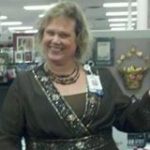 This Act Locally Waco blog post was written by Christine Holecek. Christine is an Education Specialist at Education Service Center Region 12 in Waco. She has worked in the area of Adult Education and Career & Technical Education for the past 25 years. She earned an AAS degree from MCC, a BAAS and Master’s Degree from the University of North Texas and is currently enrolled in the Doctoral Program in Educational Leadership and Policy Studies at Tarleton State University.
This Act Locally Waco blog post was written by Christine Holecek. Christine is an Education Specialist at Education Service Center Region 12 in Waco. She has worked in the area of Adult Education and Career & Technical Education for the past 25 years. She earned an AAS degree from MCC, a BAAS and Master’s Degree from the University of North Texas and is currently enrolled in the Doctoral Program in Educational Leadership and Policy Studies at Tarleton State University.
The Act Locally Waco blog publishes posts with a connection to these aspirations for Waco. If you are interested in writing for the Act Locally Waco Blog, please email [email protected] for more information.
By Katie Grovatt
Waco: I came here as a Baylor student not knowing what to expect from the city where my school is located. My quest: to go out and discover what my new home city has to offer. What I found: the Waco Downtown Farmer’s Market, a place where I can be part of the heart of a community.
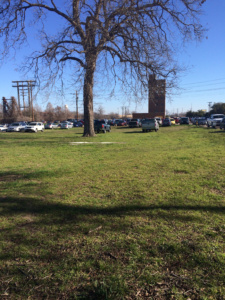 Located next to the river, close to the downtown intersection of Webster and University Parks, the farmer’s market is where local venders, people, dogs, children and live music unite to create an atmosphere of joy, especially on a beautiful Saturday morning. My first trip was on Valentine’s Day. I was excited to strap up my loving canine companion, Rosie, and see what the market had in store for us! As we rolled into a parking spot at half past 9 (the market opens at 9 a.m.), the sounds of music, laughs, and food sizzling on grills met my ears.
Located next to the river, close to the downtown intersection of Webster and University Parks, the farmer’s market is where local venders, people, dogs, children and live music unite to create an atmosphere of joy, especially on a beautiful Saturday morning. My first trip was on Valentine’s Day. I was excited to strap up my loving canine companion, Rosie, and see what the market had in store for us! As we rolled into a parking spot at half past 9 (the market opens at 9 a.m.), the sounds of music, laughs, and food sizzling on grills met my ears.
Families were touring the shady path lined with booths. Children were shoving freshly made sweets into their mouths, laughing, and hula hooping on the bright lawns. As I started my own tour through the many different vendor tents, Rosie pulling my arm off in the process, my eyes landed on a man selling freshly grown pecans.
His name was John Cogll and he was selling his grandchildren’s pecans. The business, known as “Fresh Native Pecans” is located in McGregor, Texas. They utilize wild pecans growing around Central Texas and season them with tasty spices such as “Apple Pie” or “Mesquite Smoked”. I was offered a sample as I talked to Cogll about where I could purchase some of these tasty pecans. “HEB isn’t too interested in ‘healthy’ or organic foods,” Cogll answered when I asked if I could buy these at our local grocery store. The pecans do however get distributed to grocery stores all around the area, as far as Albuquerque, New Mexico. These delicious nuts can also be purchased at ThePecanShop.com. But I would recommend traveling on Saturday yourself to the farmer’s market and purchasing a bag personally from John Cogll.
After tasting local and freshly harvested pecans, Rosie dragged me to a small booth handing out fresh samples of Indian Food. Scolding my over eager dog and untangling myself from the leash that had wrapped around my body, I smiled at the lady and asked about her history selling Indian Food. Her name was Christina Allen. She’s originally from a town outside of Austin, but currently works for the commercial kitchen known as Lamba’s. Started four years ago by an Indian couple, Garima and Gurpuet Lambo, Lambda’s is located near Austin. They sell their food at many different farmer’s markets in the Central Texas area. I sampled the delicious Spinach Pakora. Completely gluten free, Pakora is a crunchy snack bursting with a creamy flavor from the special dipping sauce known as the Royal Dip — delicious! And, I am not even a huge fan of Indian food.
Allen herself was never an Indian food fanatic either; she just picked up the job to make some extra money. After sampling the food though — authentic, healthy, and so tasty — she loves it. She still wouldn’t want to go to just any Indian restaurant, but Lamba’s food is one of her favorites. Her go-to meal is the Chicken Tikka Masala, a dish made up of freshly roasted chicken seasoned with spicy and creamy sauces. Whether or not you’re an Indian food expert, Lamba’s has options for everyone. Even the pickiest of eaters won’t be disappointed with this yummy cuisine.
 Next I followed the aroma of fresh-brewed coffee to a long and winding line of people waiting for fresh cookies, soft and warm muffins, and coconut cream lattes. I made my purchase and received my coffee in a simple white cup with the logo Double B Farms. The family running the tent was very busy with their customers so I sweetened my coffee and headed over to the live music.
Next I followed the aroma of fresh-brewed coffee to a long and winding line of people waiting for fresh cookies, soft and warm muffins, and coconut cream lattes. I made my purchase and received my coffee in a simple white cup with the logo Double B Farms. The family running the tent was very busy with their customers so I sweetened my coffee and headed over to the live music.
 Sipping my coffee and listening to a talented girl playing acoustic versions of everything from Taylor Swift to Katy Perry, I surveyed what I had just experienced. I had discovered a welcoming place, full of joy, and full of stories. I smiled as each person walked by, carrying their “souvenirs” from the farmer’s market. Each person’s purchases tells a little different story about who they are and what they like. Each one with an individual character, and each one supporting the local businesses of Waco as a whole.
Sipping my coffee and listening to a talented girl playing acoustic versions of everything from Taylor Swift to Katy Perry, I surveyed what I had just experienced. I had discovered a welcoming place, full of joy, and full of stories. I smiled as each person walked by, carrying their “souvenirs” from the farmer’s market. Each person’s purchases tells a little different story about who they are and what they like. Each one with an individual character, and each one supporting the local businesses of Waco as a whole.
It made me think. Though each one of us has our own interests, our own busy lives within this town, each of us are here for a reason and are a part of something bigger. We are people, we are joy, and we are Waco. Even though we each play a different part, we support each other. As we gather together on Saturday mornings to shop and eat and listen to music and enjoy each other’s dogs and children, we are the heart of the city, and it is a big, beautiful heart!
 This Act Locally Waco blog post was written by Katie Grovatt. Katie, a New Jersey native, is studying journalism at Baylor University. She has fallen in love with Waco since she has gotten here, and loves to spend her time exploring, meeting the many different people that make this city thrive, and writing about her adventures. Currently she is working at the Wacoan Magazine as an editorial intern, and running track and cross country for the Baylor Track & Field Team. Her dog, Rosie, is her faithful side kick and equally enjoys exploring and meeting the people of Waco.
This Act Locally Waco blog post was written by Katie Grovatt. Katie, a New Jersey native, is studying journalism at Baylor University. She has fallen in love with Waco since she has gotten here, and loves to spend her time exploring, meeting the many different people that make this city thrive, and writing about her adventures. Currently she is working at the Wacoan Magazine as an editorial intern, and running track and cross country for the Baylor Track & Field Team. Her dog, Rosie, is her faithful side kick and equally enjoys exploring and meeting the people of Waco.
The Act Locally Waco blog publishes posts with a connection to these aspirations for Waco. If you are interested in writing for the Act Locally Waco Blog, please email [email protected] for more information.
by Jenuine Poetess
“It is easy to feel lost and betrayed in a world of increasing alienation, where greed, injustice, and dull materialism obscure the underlying dream of life. There is a path the soul would have us take and a unique way of seeing the world it would have us awaken to. There is a music and rhythm in the body and a song in the soul; both an inner vitality and an instinctive connection to the divine that is the inborn source of great imagination and creativity,” mythologist Michael Meade writes. Rooted in this very conviction, Waco Poets Society holds space for every voice to share its story, song, poem, rhythm, and truths via regular open mic events throughout the city.
There is something uniquely transformative, when a collection of people—across so many cultures, beliefs, ages, disabilities, life-practices, genders, abilities, talents, genres, styles, and languages—gather together to share with to one another. Assumptions, prejudices, walls begin to crumble as we listen to each other. We begin hearing pieces of our own stories, nestled within the harmonies and poetics of another. We recognize parts of ourselves in the mirrors our creative expressions are for one another.
 The extraordinary thing is that regardless of all the things that might divide us, within the space of an open mic, we respect and honor the expression. We don’t all have to agree on the content, but we hold space for one another acknowledging that every person has authority over their own truth. While Waco Poets Society is committed to holding an uncensored space, their one caveat is that hate speech of any kind—toward self or others—is not welcome because it is not a productive part of cultivating authentic community.
The extraordinary thing is that regardless of all the things that might divide us, within the space of an open mic, we respect and honor the expression. We don’t all have to agree on the content, but we hold space for one another acknowledging that every person has authority over their own truth. While Waco Poets Society is committed to holding an uncensored space, their one caveat is that hate speech of any kind—toward self or others—is not welcome because it is not a productive part of cultivating authentic community.
Beyond Waco Poets Society, other individuals and grass-roots initiatives are beginning to bloom throughout this city. Organized by Saddiq Granger, a new gathering called Minority Report is an open-to-all talking circle safe space where everyone is invited to share their stories of minority experiences or being marginalized in any setting due to a specific difference…and it’s a potluck!
It is vital to the thriving of our community that such spaces continue and multiply. There is no such thing as too many spaces for creative and authentic expressions of personal truths! These circles and conversations and open mic gatherings and dialogues are what allow us to give one another agency. To affirm that Yes! our stories, our experiences matter. To step for a moment into another’s shoes and feel the challenges of the path they walk daily. To deepen our mindfulness and broaden our compassion. This is how our city will flourish. This is how we will continue growing into the community where everyone is welcome, celebrated, and honored for exactly who they are. Of course we don’t all have to believe or live or practice or speak or dress or express in the same ways. How bland would life be if that were the case!
Open mic and creative talking circles give us the opportunity to practice being curious about the truths of others. We hold space for people to be nourished and inspired by the collective creativity exchanged. Artists are allowed to practice new styles and voices and expressions while sorting out their own true identity. We have grace for the mistakes, stutters, and stumbles because we celebrate the fact that all of us, not just our art works, are rough drafts. We challenge one another as those more experienced nudge those of us just starting out into enriched becoming. Across generations and cultures and languages and beliefs and genders and identities relationships are formed. And those relationships, transform individuals, transform neighborhoods, transform cities, transform nations.
Get Involved:
- New Open Mic collaboration between Waco Poets Society, Central Texas Artist Collective, & Tea2Go Waco every 3rd Thursday beginning May 21st @ 7pm with a kick-off event featuring singer/song-writer Katie Stewart. CTAC will be curating a monthly visual arts exhibit which will open each month at open mic. FREE ~ please purchase drinks to support this new local business!
- Nuestra Voz open mic @ Art Forum of Waco May 23, 2015 at 7pm. Theme for this event is Grief & Loss. This will be a safe space for remembering, honoring, reflecting on expressions of who and what has been lost. This is a potluck event; bring a main, side, dessert dish or drink to share. FREE ~ $3 donations appreciated & shared with Art Forum.
- Keep up with the next Minority Report circle & potluck by visiting & liking their social media page at: facebook.com/MinorityReportWaco

